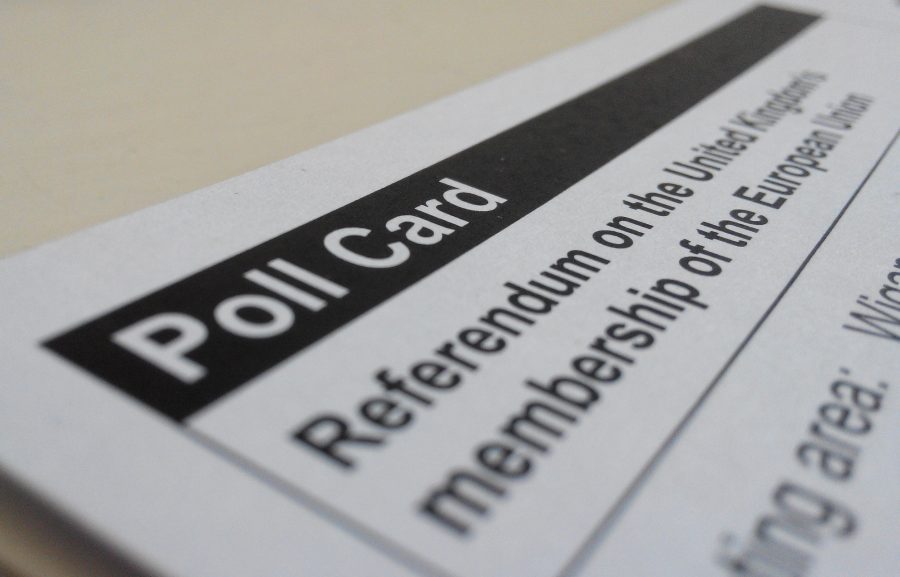Britain leaves the European Union
On Jun. 24 the votes were in and it was decided—the United Kingdom will exit the European Union. Although the referendum is over, how will this major event in European politics play out?
June 24, 2016
Today Britain decided to leave the European Union. In an unprecedented national referendum, 51.9 percent of the electorate voted for Brexit, or British exit from the European Union (EU). This decision makes the United Kingdom the first country in the history of the EU to break from this economic and political group that binds the majority of Europe’s main powers together.
However rapidly this decision may have come, the actual process of disengagement from the EU will not occur for quite some time. Now that Britain has decided to leave the EU, the British Prime Minister will have to call into effect Article 50 of the Lisbon Treaty, which outlines the provisions for withdrawal from the union. This will begin the formal procedure of exiting the EU, an uncharted area in European politics.
In order to sever its ties with the EU, Britain must undergo negotiations and agreements with member states of the EU in order to secure trade and security deals, among other provisions, for future relations between Britain and EU members. To formally leave the EU, all 27 remaining member states must ratify Britain’s exit. As the second strongest economy in the union after Germany, many European states may be reluctant to accept all of Britain’s propositions, as any British exit would be disadvantageous to the overall economy of their nations and the EU.
To complicate matters more, anti-Brexit British Prime Minister, David Cameron, just resigned following the immediate pressure calling for him to step down after the results of the referendum. Cameron called for this referendum and since more than half of the nation defied his position to remain and voted for Britain to leave the EU, he put in his resignation.
The road for British independence from the EU is a long and untested journey that may take upwards of two years to complete due to the complex nature of these negotiations, as per Gus O’Donnell, former British Cabinet Secretary. This is quite troubling as the formal time frame to submit an application for withdrawal and complete negotiations is two years and an extension on this period would be hard to obtain. A rejected extension would put more strain on Britain as this could possibly result in increased trade tariffs on the UK.
Another possible obstacle facing Britain as it starts on its path away from the EU is yet another referendum. Although Britain as a whole has decided to end its current relationship with the EU, the majority of Scotland voted to remain part of the union. As Scotland sees its future as one linked with the EU, it is quite possible that Scotland will raise the question of whether or not they should be part of the United Kingdom once again.
Although the Brexit resolution is a historical development in European politics, the consequences of this decision will be felt far beyond the borders of Europe. In fact, the ramifications of Brexit were felt immediately around the world, highlighted by the drastic drop in the value of the British Pound, plummeting to 31 year record lows.
As Britain decides its future following their decision to exit the EU, European and world politics are changing and no one quite knows what the long-term impact of Britain’s departure from the EU will be. Brexit may just be the beginning of a new era for Britain, the EU and the world.
Check back for more updates as developments occur.
Photo courtesy of Creative Commons.
UPDATE: Jun. 26, 2016
After the news of Britain’s referendum reached the United States, the Dow Jones Industrial Average, an important stock market index, dropped by over 600 points, demonstrating the immediate fiscal effect of the UK’s decision to leave the EU.
In regards to Scotland’s potential referendum, Nicola Sturgeon, Scottish First Minister, said that “a second independence referendum is clearly an option that requires to be on the table, and it is very much on the table.”
Following this statement, rumors were spread that the Scottish Parliament, commonly referred to as Holyrood, might be able to thwart Britain’s divorce with the EU. However, one member of the Scottish Parliament, Adam Tomkins, disagrees.
————–
Even though the Scottish Parliament does not have the ability to stop Britain’s exit from the EU, according to Tomkins, a Scottish split from the UK remains a possibility in the foreseeable future.
Check back for more updates as developments occur.





